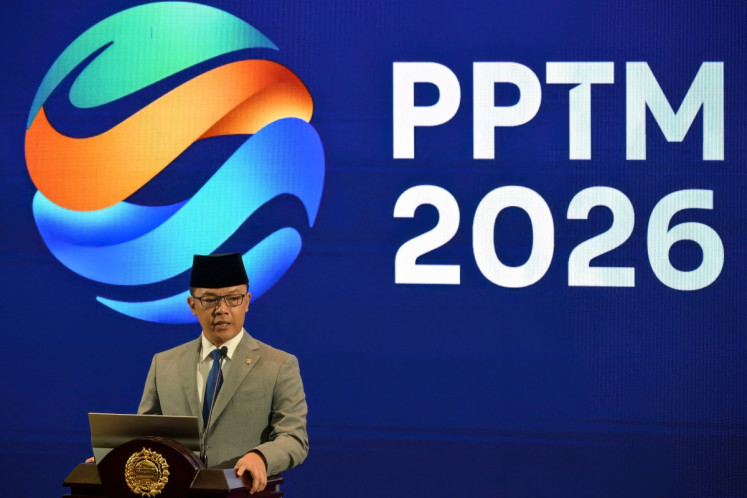Popular Reads
Top Results
Can't find what you're looking for?
View all search resultsPopular Reads
Top Results
Can't find what you're looking for?
View all search resultsSpecial needs children find place in society
Noreen Flores had a difficult time trying to enroll her son in school
Change text size
Gift Premium Articles
to Anyone
N
oreen Flores had a difficult time trying to enroll her son in school.
The boy, Jibrail, has Asperger’s Syndrome, which is characterized by significant difficulties in social interaction and repetitive routines. This condition made it’s difficult for Flores to find a school that her son liked.
“He would spend around an hour at one school, before telling me that he did not like the place. I would then have to register him at a different school,” Flores said.
Flores repeated this ritual of registration and rejection four times. It wasn’t until Flores discovered the Australia International School (AIS) in Jakarta that Jibrail found a school where he could settle down.
“I believe he immediately liked the AIS because of its orderly environment and friendly staff. In short, he didn’t feel alienated,” Flores said.
Jibrail is now 20. After spending all 12 years of grade school at the AIS, he has been accepted by Polytechnic West in Perth, Australia, where he will study auto mechanics.
Jibrail’s success in finding a place within society is one that AIS founder Penny Robertson is trying to replicate for all her students with special needs.
An integral part of this journey toward discovery and acceptance involves growing up within society at large.
People with special needs should not be segregated from society on account of their conditions, she said.
She cited her own daughter, Shona, as an example of how being treated as an equal member of society could make a significant difference in the personal lives of people with disabilities.
Shona is now 31 years old. She has Downs Syndrome. She does administrative work at Australia’s Gold Coast City Council in Queensland.
“She gets a salary slip, she gets to have coffee with her colleagues and she gets to has lunch with the workforce,” she said on Monday, the opening day of the school’s Student Support Center, which provides services such as speech therapy, learning assistance and psychological counseling, to cater to the needs of children with disabilities.
Robertson said that Shona’s ability to immerse herself in society had made her feel “normal, like everyone else”, which makes all the difference in the lives of special needs persons.
Part of what can help the process of inclusion is a refusal to negatively label children with special needs conditions, according to AIS’ head of learning support, Rovanna Bawden.
Bawden said that educators should support a concept she called “multiple intelligences”, which categorized the capacities of students with special needs as different, not inferior.
However, educators are not the only people responsible for making life better for those with special needs.
Flores said that everyone could play an important role in raising special needs children to become contributing and fulfilled members of society.
“It takes a village to raise a kid,” Flores said, quoting Hillary Clinton. “Any kid. As human beings, we have a moral duty to care for one another, especially those who are born with disabilities. All religions preach that. If anything, these children teach the world compassion.” (png)










